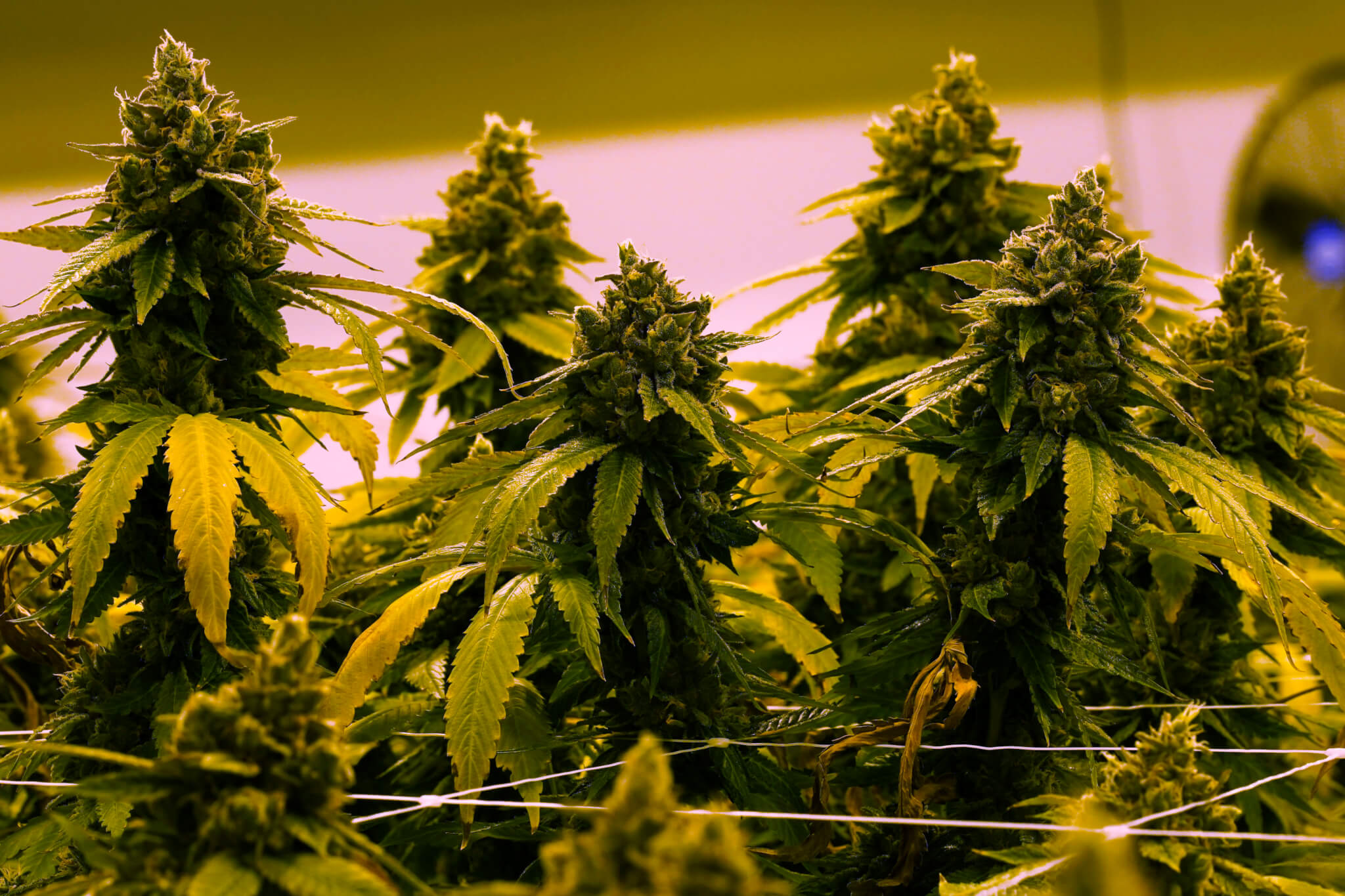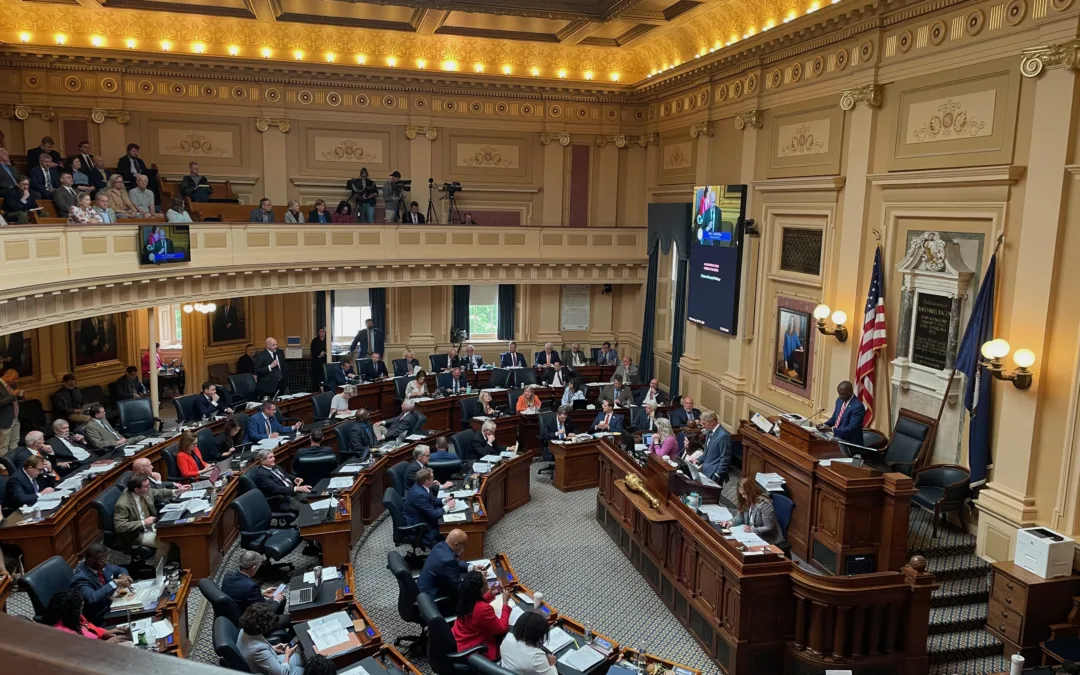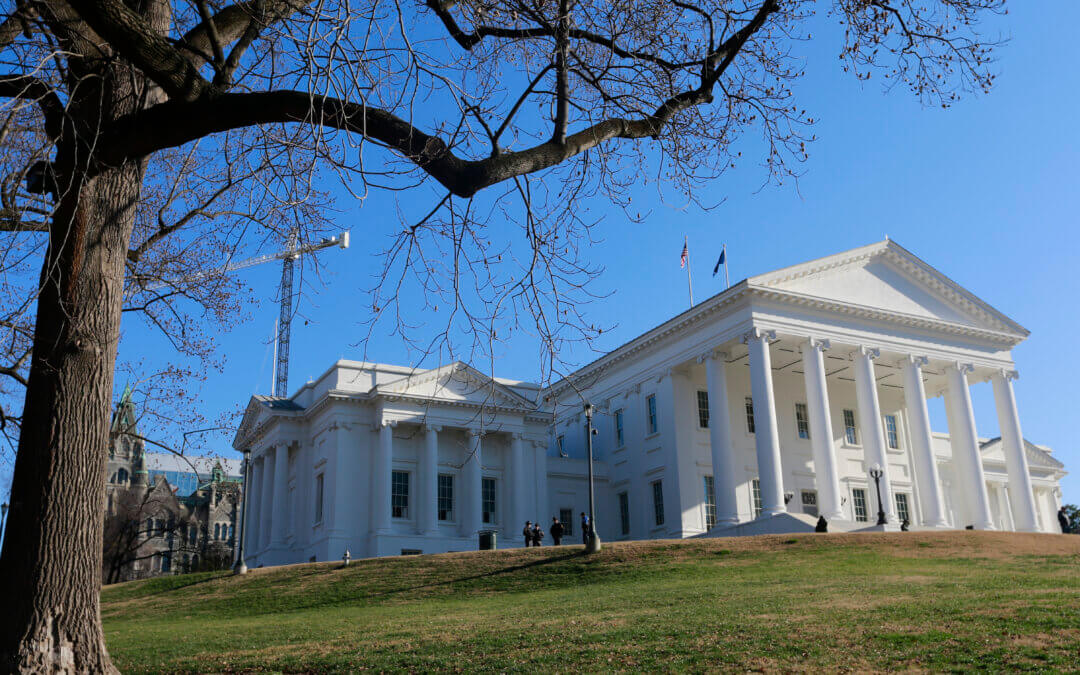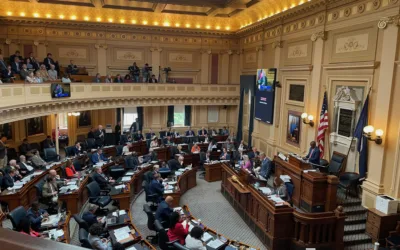
A cannabis plant that is close to harvest grows in a grow room at the Greenleaf Medical Cannabis facility in Richmond, Va., June 17, 2021. (AP Photo/Steve Helber, File)
Republican Del. Keith Hodges has filed a bill to create a regulated marijuana market in Virginia, but in a way that marijuana legalization advocates say would benefit large corporations at the expense of people harmed by the war on drugs.
The bill would change crucial aspects of Virginia’s current law—which allows legal, adult-use cannabis possession and personal cultivation—by establishing a commercial marketplace and overriding equity guidelines prioritizing cannabis dispensary licenses for individuals and communities most affected by the state’s marijuana prosecutions.
It’s also worth noting that one of Del. Hodges’ top donors is Richmond-based Altria, one of the world’s largest producers of tobacco, cigarettes, and related products. Altria and other tobacco and alcohol companies are quietly laying groundwork with the aim of dominating the legal cannabis market.
In 2021, Virginia Democrats legalized marijuana in the Commonwealth, marking a significant achievement for former Gov. Ralph Northam in the final year of his governorship. It was a bill that every Virginia Democrat supported and every Republican voted against. Under the law, adults ages 21 and over could possess an ounce or less of marijuana beginning on July 1, 2021. At the time, Northam said that it would be “a mistake to continue to penalize people for possessing a drug that would soon be legal.”
The legalization timeline, however, put Virginia cannabis consumers in an unusual predicament. While it became legal to grow up to four marijuana plants beginning on July 1, 2021, the state couldn’t begin licensing recreational marijuana retailers for several years, and the law didn’t allow the state’s existing medical dispensaries to begin selling to all adults immediately.
The regulatory language in the law, however, allowed for future modification, paving the way for Hodges’ new bill.
Del. Hodges’ proposal, HB 1464, would give legislators a different, less equitable model for the market. Hodges’ allies say that these revisions could lay out a “practical path forward,” but legalization advocates say these changes could harm those affected by the commonwealth’s–and the nation’s–long history of disproportionately targeting people of color for marijuana prosecutions.
The 2021 law specifically laid out a category of “social equity” applicants, such as people who’ve been charged with marijuana-related offenses or who graduated from historically Black colleges and universities. Those entrepreneurs are supposed to be given preference when the state grants licenses for dispensaries.
Hodges’ bill would remove language that calls on regulators to develop standards on prioritizing social equity applicants. They would instead need to consider ways to “prioritize any applicant who intends to operate in a historically economically disadvantaged area, rather than those who are from such an area.”
“It’s a major shift to replace policies empowering people in communities harmed by the drug war with new financial benefits for corporations who locate their businesses in disadvantaged areas—essentially bringing in outside companies to target poor people for profit,” Shaleen Title, founder of the Parabola Center, told Marijuana Moment.
Hodges’ proposal would also eliminate the requirement of prospective multi-license holders to submit “diversity, equity, and inclusion plans,” delete an entire section that lays out social equity license applicant criteria such as ownership by people with prior cannabis convictions, and prioritizes licensing for existing pharmaceutical processors, industrial hemp processors, and medical cannabis dispensaries.
Under the Republican’s plan, small cannabis businesses would also be allowed to enter into cooperatives with other small business licensees to “lease space and cultivate, manufacture, and sell retail marijuana and retail marijuana products on the premises of another licensee.”
Marijuana sales would be subject to a 10% excise tax under this proposal, but the legislation would strike language in the existing law regarding how those funds would be distributed; for example, 30% of tax revenue would no longer go toward a Cannabis Equity Reinvestment Fund.
Finally, Hodges’ proposal stipulates that banks and credit unions that work with these state-licensed marijuana businesses could not be penalized under state law simply because they service the industry.
Legalization advocates expect to see some movement forward on the bill when Virginia’s legislative session starts next week.
Notably absent from Virginia’s marijuana conversation is Gov. Glenn Youngkin’s voice. In the past, Youngkin has said that he wouldn’t interfere with the implementation of the 2021 bill, and last month, he released a budget proposal that includes $2.1 million in funding for a hemp registration and inspection program. Lawmakers are also eyeing regulations for hemp-based cannabinoids like delta-8 THC.

Meta’s ‘teen safety’ tools are failing Virginia kids—and Gov. Glenn Youngkin isn’t helping
Parents and cybersecurity experts want Virginia lawmakers to hold companies like Meta accountable when their platforms fail to keep their pledges to...

‘Ticket to Ride’ and pickle sandwiches: The family life behind Abigail Spanberger’s campaign
Remember the viral victory speech with the toddler under the podium? That kid’s mom could be Virginia’s next governor. On Nov. 4, Democratic...

Virginia Dems enter redistricting fight in response to Trump’s power grab
Lawmakers are reportedly reconvening in Richmond on Monday with plans to redraw the state’s congressional maps to counter several Republican-led...

OPINION: Why Virginia families deserve paid leave
Ana walked into my pediatric clinic in Northern Virginia with her six-week-old daughter. As we weighed her baby for the fourth time this month, we...

Youngkin, who’s backed Trump’s agenda, sets aside $900 million as cushion for economic pain it could unleash
Virginia’s term-limited Republican governor remains steadfast in his support for Trump’s massive federal workforce cuts, intensive trade war, and...

Opinion: The Youngkin-Sears administration doesn’t care about us
In March, the Youngkin-Sears administration vetoed commonsense bills that would allow hard-working Virginians to do more than just survive. They...




